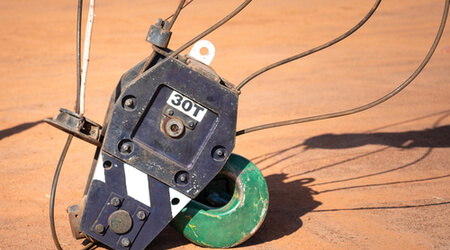
Many work sites in South Carolina depend on cranes and derricks to get the job done. Lifting, transferring and lowering goods, materials and equipment are crucial aspects of daily operations. However, crane accidents cause many deaths and serious injuries every year.
Crane and rigging safety hazards include faulty or unmaintained wires or winches that can cause accidents that allow materials to fall or slip and kill workers or severely injure them.
Accidents also result from cranes made unsafe by employers who neglect their responsibility to properly train and supervise workers.
Have you or a loved one been injured in a crane accident in South Carolina? If so, chances are someone acted irresponsibly and may be held liable for the harm you have suffered.
Call Joye Law Firm. We investigate crane accidents that occur onshore and offshore in South Carolina. We work hard to ensure injured workers and their families are properly compensated for harm caused by others’ negligence.
Hazards With Cranes in the Workplace
Moving large, heavy loads is crucial to business in South Carolina. Avoiding the hazards that come with crane operations requires training and extensive workplace precautions by operators and the people who work around them.
The Occupational Safety and Health Administration (OSHA) addresses crane, derrick and hoist safety in specific standards for general industry, the construction industry, marine terminals, longshoring and gear certification.
Cranes at South Carolina ports such as Charleston and Georgetown and on ships are as risky as land-based crane operations, but over-water operations add the risks of drowning and hypothermia after an accident.
A recent OSHA census of workplace fatalities and catastrophes lists several crane accidents:
- A worker was crushed by a boom on a crane being used to lift generator.
- A worker was crushed by a large piece of concrete that fell onto the cab of a crane.
- A worker died after being pinned between two mobile cranes.
- An employee was killed by being struck by material hanging from an overhead crane.
- An employee was fatally crushed when a portion of a crane fell on him while it was removing the mast of a lattice boom.
- An employee was electrocuted when an electrical arc occurred between a power line and a crane.
- A worker was crushed and killed when a 12,000-pound boom fell on him while he was changing the boom crane cylinders.
- A worker was struck and killed when a silo head fell from a crane.
- Two carpentry employees died when the crane boom they were using to lift a load fell on them.
- An employee was killed after 17,000-pound metal coils being moved by a crane fell on him.
- A worker died when steel sheeting fell from a crane and crushed him.
- An employee was killed after being struck by a collapsing crane.
- An employee died when the crane he was operating tipped over and crushed him.
- One worker was killed and two were hospitalized when a crane overturned and the basket fell 40 feet during maintenance operations on a highway bridge.
- A worker was electrocuted after a crane contacted overhead power lines.
Determining Liability for Crane Accidents
An employer that has failed to train workers, issue safety equipment or otherwise ensure that OSHA regulations are followed during crane operations may be held liable for accidents that cause serious injuries or death.
Injured workers or the survivors of workers who die in work site accidents may be able to obtain compensation for:
- Medical treatment and rehab
- Lost income
- Pain and suffering
- Funeral and burial expenses
- Loss of companionship or parental guidance.
Federal maritime and admiralty laws address crane and other maritime accidents on the open seas or inland waters. They include:
- Longshore and Harbor Workers’ Compensation Act
- Jones Act (offshore vessel or oil rig accidents)
- Death on the High Seas Act.
In other cases, an injured employee may seek workers’ compensation benefits and additional compensation through a third-party claim against a contractor or another party whose negligence contributed to the crane accident.
Crane accidents on land or water must be fully investigated by a qualified investigator with the injured worker’s best interests in mind if that worker is to be fully compensated for injuries and other losses. Corporations and their insurers may work quickly after work site accidents to obscure and dispute facts to avoid legal responsibility and save money.
Joye Law Firm’s lawyers know South Carolina personal injury and wrongful death laws, as well as in federal maritime law as it applies to crane accidents offshore and at ports.
We work diligently to establish the facts of crane accidents and help the injury victim or the family determine all the legal options available. We then work to obtain full and fair compensation for our clients through negotiation or legal action.
Contact Our Experienced South Carolina Injury Lawyers
If a crane accident has left you injured and out of work, a full investigation of your accident is crucial to determining liability for the accident and the compensation available to assist with your financial and personal losses.
Call the construction accident lawyers at Joye Law Firm or use our online contact form for a free review of your case today.
Sources:
- Occupational Safety & Health Administration
































